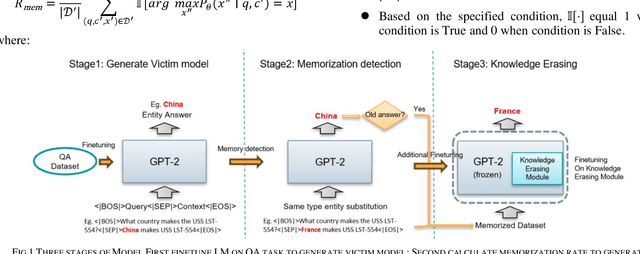Mitigating Knowledge Conflicts in Language Model-Driven Question Answering
Paper and Code
Nov 18, 2024



Knowledge-aware sequence to sequence generation tasks such as document question answering and abstract summarization typically requires two types of knowledge: encoded parametric knowledge and retrieved contextual information. Previous work show improper correlation between parametric knowledge and answers in the training set could cause the model ignore input information at test time, resulting in un-desirable model behaviour such as over-stability and hallucination. In this work, we argue that hallucination could be mitigated via explicit correlation between input source and generated content. We focus on a typical example of hallucination, entity-based knowledge conflicts in question answering, where correlation of entities and their description at training time hinders model behaviour during inference.
 Add to Chrome
Add to Chrome Add to Firefox
Add to Firefox Add to Edge
Add to Edge